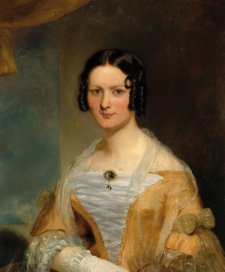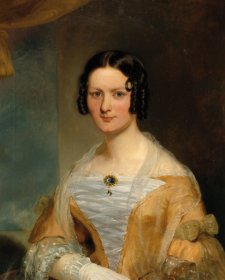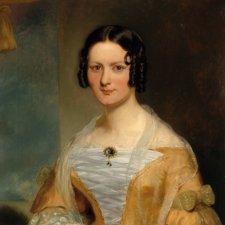The Gallery will be open until 9pm this Friday, Saturday and Sunday.
Sir John Franklin (1786-1847), Arctic explorer and governor, served under Matthew Flinders on the Investigator and later said that this experience fired his passion for exploration. After fighting in the Bellerophon at Trafalgar, in 1818 he made his first Arctic voyage, a fruitless expedition to locate the Northwest Passage, a sea route linking the Atlantic and Pacific oceans. He ventured to the Arctic again in 1819, leading a three year, 8000 kilometre expedition across Canada, following which he became a fellow of the Royal Geographical Society. From 1824 to 1828 he commanded another expedition to the Arctic which was rewarded with a knighthood, an honorary doctorate from Oxford, and the gold medal of the Royal Geographical Society of Paris. After 30 years of naval service, he accepted an appointment as lieutenant-governor of Tasmania, arriving in Hobart in 1837. Franklin, his second wife Jane (nee Griffin, 1791-1875) and his private secretary Alexander Maconochie brought progressive ideas about the cultural development of the colony and the reformation of the penal system, but powerful colonists, who profited from convict labour, harried him until he was recalled in 1843. Franklin disappeared on his final expedition to the Arctic in 1845. Jane Franklin sponsored four expeditions to find him before it was eventually established that he and all of his crew had perished.
Collection: National Portrait Gallery
Gift of Ted and Gina Gregg 2012
Loretta Pash (40 portraits)



On one level The Companion talks about the most famous and frontline Australians, but on another it tells us about ourselves.



Henry Mundy's portraits flesh out notions of propriety and good taste in a convict colony.



Visit us, learn with us, support us or work with us! Here’s a range of information about planning your visit, our history and more!